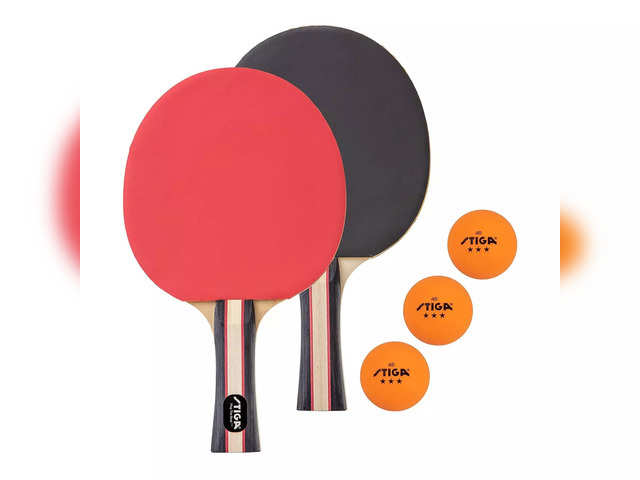The best sports to play for avoiding concussions are swimming and gymnastics due to their minimal contact and low risk of head injuries. Both sports require high physical engagement without the same level of impact as contact sports, making them safer options for those concerned about head injuries.
In recent years, the focus on head injuries in sports has increased significantly, prompting many athletes, parents, and coaches to seek out safer alternatives. While contact sports like football and hockey can be thrilling, they also carry a higher risk of concussions due to the nature of the game.
Concussions can have serious implications for the long-term health and wellbeing of athletes, making it all the more important to choose sports that minimize this risk. Swimming and gymnastics have become popular choices for individuals looking to participate in physical activities that offer the benefits of athleticism and competition without the same level of potential head trauma. These sports prioritize body control, agility, and flexibility, providing an excellent alternative for those seeking non-contact options. Swimming, for instance, is a full-body workout that helps improve cardiovascular health, strength, and coordination. Being a low-impact activity, it significantly reduces the chances of head injuries, making it an ideal sport for preventing concussions. Similarly, gymnastics focuses on balance, strength, and body awareness while minimizing contact and head impacts. These factors contribute to a lower chance of concussions compared to contact sports, making it a safer choice. By choosing sports like swimming and gymnastics, individuals can still engage in physical activities that promote fitness, discipline, and personal growth while reducing the risk of head injuries and long-term health consequences associated with concussions.

Credit: www.umc.edu
Understanding Concussions
Concussions are a commonly discussed topic when it comes to sports injuries, and for good reason. While they are often referred to as “mild” traumatic brain injuries, concussions can have serious consequences for the individuals who experience them. In this section, we will delve into the causes of concussions as well as the long-term effects they can have.
Causes Of Concussions
Concussions can occur due to a variety of factors, but they most commonly result from a blow or jolt to the head. This can happen during high-contact sports activities like football, soccer, or hockey, where collisions are a common occurrence. However, concussions can also happen in non-contact sports like basketball or even while participating in recreational activities such as cycling or skateboarding. It’s important to note that concussions can occur without any direct impact to the head. A powerful force transmitted through the body, such as a hard tackle or fall, can cause the brain to move within the skull, resulting in a concussion.
Long-term Effects Of Concussions
The effects of a concussion can extend beyond the initial injury. While many individuals recover fully within a few weeks or months, some may experience long-term effects. These effects can vary greatly from person to person and can include cognitive problems such as memory difficulties, trouble concentrating, or slowed thinking. Emotional and behavioral changes, such as irritability, anxiety, or depression, can also be experienced. In some cases, repeated concussions can lead to a condition known as chronic traumatic encephalopathy (CTE), which is associated with more severe and lasting cognitive and emotional impairment.
It’s important to understand the causes of concussions and the potential long-term effects they can have in order to make informed decisions about the sports we play. By being aware of the risks and taking appropriate measures to prevent and manage concussions, we can continue to enjoy the benefits of participating in sports while minimizing the potential for brain injury.
Sports With Low Risk Of Concussions
For those seeking sports with a low risk of concussions, there are several options to consider. Soccer, swimming, golf, tennis, and track and field are all great choices that prioritize safety while still providing an active and enjoyable experience. So lace up your shoes and enjoy these concussion-free sports.
When it comes to sports, the risk of concussions is a major concern for many athletes. However, there are certain sports that have a low risk of concussions, making them a safer choice for those who want to stay active while minimizing the chance of head injuries. Let’s take a closer look at three popular sports – swimming, cycling, and golf – that have been found to be associated with fewer concussions.
Swimming
Swimming is a fantastic sport that not only offers a refreshing way to beat the heat but also comes with a low risk of concussions. This is because water provides a natural cushioning effect, reducing the impact on the head in the event of a fall or collision. Whether you prefer the thrilling races in competitive swimming or the tranquility of a leisurely swim, diving into the pool can help you stay fit without worrying about the risk of concussions.
Cycling
Cycling is another excellent sport that has a low incidence of concussions. Unlike contact sports, such as football or hockey, cycling doesn’t involve direct physical contact with other players. With proper safety gear, including a well-fitted helmet, cyclists can enjoy the benefits of this activity while significantly reducing the risk of head injuries. Whether you prefer road cycling or off-road adventures on a mountain bike, this sport offers a thrill without the worry of concussions.
Golf
Golf, known for its leisurely pace and strategic play, is yet another sport that has a low risk of concussions. While the occasional stray golf ball can pose a potential risk, the sport itself doesn’t involve high-impact collisions or physical contact with opponents. By focusing on technique, concentration, and precision, golfers can enjoy a low-risk sport that not only tests their skills but also helps them stay physically active without the worry of concussions.
Sports With Moderate Risk Of Concussions
When it comes to staying active and playing sports while minimizing the risk of concussions, it’s important to choose activities that are known for having a moderate risk of head injuries. While no sport is completely immune to concussions, certain sports have lower incidence rates compared to high-contact sports like football or hockey.
Soccer
Soccer, also known as football, is an engaging sport that involves using your feet to control the ball and score goals. With a moderate risk of concussions compared to high-contact sports, soccer is a popular choice for individuals looking to exercise and play competitively without as much concern for head injuries.
Thanks to its emphasis on footwork and good sportsmanship, soccer provides an excellent cardiovascular workout and improves coordination and agility. By focusing on ball control and strategic passing, players can enjoy the sport while minimizing the risk of concussions.
Basketball
Basketball is another sport that offers a moderate risk of concussions. Played on a court with teams dribbling and passing a ball to score baskets, basketball is a thrilling game that focuses on agility, coordination, and teamwork. While accidental collisions and falls can occur, the risk of head injuries in basketball is generally lower compared to sports with more contact.
With the added benefit of building strength, endurance, and improving cardiovascular health, basketball is a great choice for individuals who want to engage in a team sport while reducing the risk of concussions. With proper warm-ups, protective gear, and training techniques, players can stay safe while enjoying the excitement of the game.
Tennis
Tennis, a popular individual sport, offers a moderate risk of concussions. Played on a rectangular court, players use rackets to hit a ball back and forth over a net. With a focus on speed, agility, and hand-eye coordination, tennis provides an excellent full-body workout while minimizing the risk of head injuries.
By ensuring proper technique, using the appropriate protective gear, and being mindful of the surroundings, tennis players can actively participate in this sport, knowing that the risk of concussions is relatively low compared to high-contact sports. Whether playing on a professional court or in the backyard, tennis is a versatile and enjoyable option for those looking to stay active.

Credit: www.actionnetwork.com
Sports With High Risk Of Concussions
Avoiding high-risk sports like football and rugby can help reduce the chances of experiencing concussions while still enjoying physical activity. Opting for safer alternatives such as swimming, tennis, or track and field can be a great way to stay active while minimizing the risk of head injuries.
Engaging in sports can be a great way to stay fit and have fun, but some sports come with a higher risk of concussions. Concussions, also known as mild traumatic brain injuries, can occur due to a blow to the head or a jolt that causes the brain to move rapidly back and forth. It is crucial to be aware of sports with a high risk of concussions to make an informed decision about which sport to play.
Football
Football is a popular sport that involves rough physical contact, making it one of the sports with the highest risk of concussions. The nature of the game, with players tackling and blocking each other, increases the likelihood of head injuries. Although helmets provide some protection, they cannot eliminate the risk entirely. Coaches and players must prioritize safety measures to reduce the occurrence of concussions, such as proper tackling techniques and equipment maintenance.
Hockey
Hockey is another sport notorious for its high risk of concussions. With intense physicality and the use of a hard puck, players are vulnerable to head injuries from collisions, checks, and falls on the ice. The speed and force involved in hockey contribute to the severity of concussions. Wearing certified helmets and following safety protocols is crucial for players to minimize the risk of head injuries and promote a safer game.
Rugby
Rugby is a sport known for its physicality and full-body contact, making it no surprise that concussions are common. Tackling, scrums, and collisions can result in head injuries, posing a significant risk to players. The absence of protective equipment like helmets adds to the vulnerability. Educating players, coaches, and referees about proper tackling techniques and implementing strict concussion protocols is vital to ensure the safety of rugby players and prevent long-term consequences.

Credit: www.sandiegouniontribune.com
Are Sports That Require a Cycling Helmet Less Likely to Cause Concussions?
Cycling helmet sports prioritize safety by reducing impact during falls or collisions, offering essential head protection. These helmets absorb shock, significantly lowering the risk of severe head injuries, including concussions. While no sport is entirely risk-free, the protective gear used in cycling helmet sports plays a crucial role in minimizing potential head trauma.
Frequently Asked Questions On Best Sports To Play To Avoid Concussions
What Sport Has The Least Concussions?
Golf has the least concussions among sports.
What Is The #1 Most Concussed Sport?
Football is the #1 most concussed sport due to the frequency of high-impact collisions.
What Are Sports Doing To Prevent Concussions?
Sports are taking several measures to prevent concussions. These include improving equipment, enforcing strict rules against dangerous plays, providing education on concussion symptoms, and implementing protocols for immediate assessment and removal from play if a concussion is suspected.
What Is The Easiest Sport To Get A Concussion In?
Football is the easiest sport to get a concussion in.
Conclusion
To sum up, choosing the right sports to minimize the risk of concussions is of utmost importance. By opting for sports such as swimming, tennis, and track and field, players can focus on enhancing their athleticism without compromising their safety.
Investing in proper equipment and precautions is crucial to further mitigate potential risks. Ultimately, with the right choices, individuals can continue to enjoy the thrill of sports while protecting their long-term brain health.





